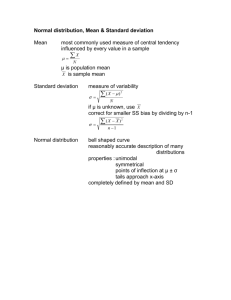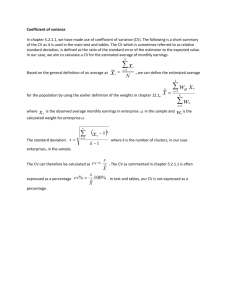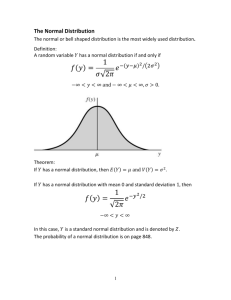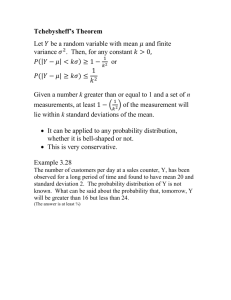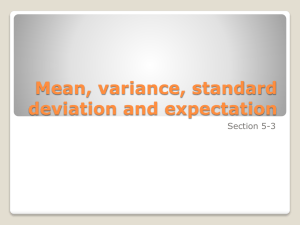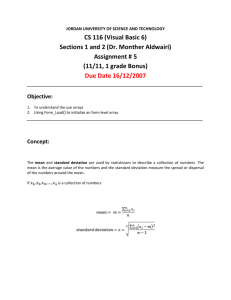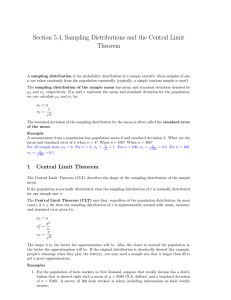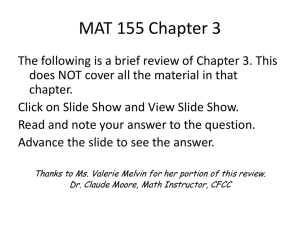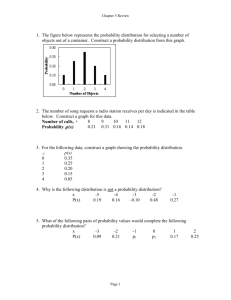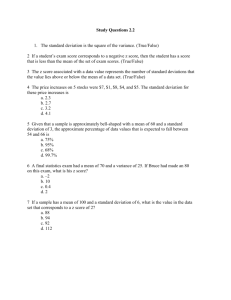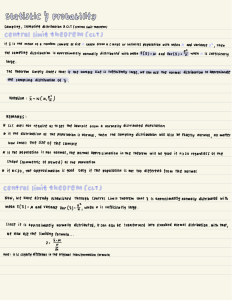Summary on normal distribution
advertisement
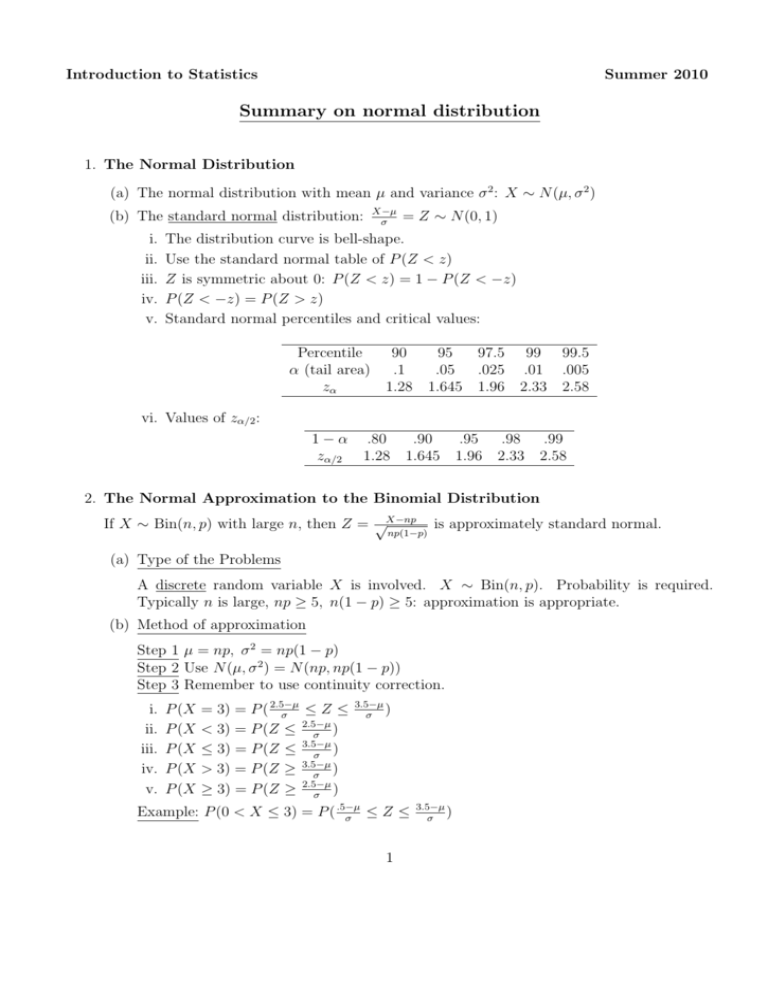
Introduction to Statistics Summer 2010 Summary on normal distribution 1. The Normal Distribution (a) The normal distribution with mean µ and variance σ 2 : X ∼ N (µ, σ 2 ) (b) The standard normal distribution: i. ii. iii. iv. v. X−µ σ = Z ∼ N (0, 1) The distribution curve is bell-shape. Use the standard normal table of P (Z < z) Z is symmetric about 0: P (Z < z) = 1 − P (Z < −z) P (Z < −z) = P (Z > z) Standard normal percentiles and critical values: Percentile α (tail area) zα 90 .1 1.28 95 97.5 .05 .025 1.645 1.96 99 99.5 .01 .005 2.33 2.58 vi. Values of zα/2 : 1−α zα/2 .80 1.28 .90 1.645 .95 1.96 .98 2.33 .99 2.58 2. The Normal Approximation to the Binomial Distribution If X ∼ Bin(n, p) with large n, then Z = √X−np np(1−p) is approximately standard normal. (a) Type of the Problems A discrete random variable X is involved. X ∼ Bin(n, p). Probability is required. Typically n is large, np ≥ 5, n(1 − p) ≥ 5: approximation is appropriate. (b) Method of approximation Step 1 µ = np, σ 2 = np(1 − p) Step 2 Use N (µ, σ 2 ) = N (np, np(1 − p)) Step 3 Remember to use continuity correction. i. ii. iii. iv. v. P (X P (X P (X P (X P (X = 3) = P ( 2.5−µ ≤Z≤ σ 2.5−µ < 3) = P (Z ≤ σ ) ≤ 3) = P (Z ≤ 3.5−µ ) σ 3.5−µ > 3) = P (Z ≥ σ ) ≥ 3) = P (Z ≥ 2.5−µ ) σ 3.5−µ ) σ Example: P (0 < X ≤ 3) = P ( .5−µ ≤Z≤ σ 1 3.5−µ ) σ 3. Sampling Distributions (a) The r.v.’s X1 , X2 , . . . , Xn are a random sample (iid) of size n if i. X1 , X2 , . . . , Xn are independent. ii. Every Xi has the same probability distribution. (b) Let X1 , X2 , . . . , Xn be a random sample from a distribution with mean µ and standard deviation σ, then i. E(X) = µ √ ii. Var(X) = σ 2 /n and σX = σ/ n (c) Let X1 , X2 , . . . , Xn be a random sample from any distribution with mean µ and variance σ 2 . Then for large n (n ≥ 30), i. X is approximately N (µ, σ 2 /n) ii. Central Limit Theorem (CLT): Z= X −µ √ is approximately N (0, 1) σ/ n (d) For unknown σ If X1 , . . . , Xn is a random sample from N (µ, σ 2 ), and S 2 = T = Pn 2 i=1 (Xi − X) /(n − 1), then X −µ √ ∼ tn−1 S/ n Example Review on Sampling Distribution of the Mean i. Type of the Problems (Population) mean µ and standard deviation σ of a random variable X is given. Then it asks for probability concerning the sample mean X. (In some problems, probability of sum is required). ii. II. Method A. If X ∼ N (µ, σ 2 ), X ∼ N (µ, σ 2 /n), n ≥ 1 B. If X is not normal, X ' N (µ, σ 2 /n), n ≥ 30 iii. In any case, we calculate probability using N (µ, σ 2 /n). Do not use continuity correction. Eg. X has mean µ = 5, standard deviation σ = 20, n = 100. X is approximately N (µ, σ 2 /n) = N (5, 4). ) = P (Z > .5) = .3085. Hence P (X > 6) = P (Z > 6−5 2 2
